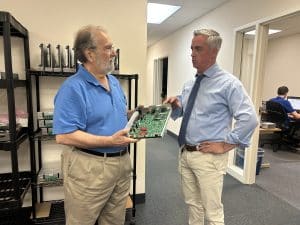Opill was recently recognized as the first FDA-approved over-the-counter daily birth control pill. While this is a step forward for contraceptive access, how can we make sure that young people—who are often navigating their sexual health for the first time and may not be well informed on safe sex practices—know about the pill and how to obtain it?
Birth control pills aren’t exclusively used to prevent pregnancy. They can be prescribed for a variety of reasons, including excessively heavy or painful periods, polycystic ovary syndrome and hormonal acne.
Even still, the stigma around birth control and its association with being sexually active often makes it an uncomfortable topic for adolescents to bring up to their parents or doctor. As a result, many teenagers engage in sexual activity without adequate protection, leading to unintended consequences such as pregnancy. Teen pregnancy has been linked to significant mental health issues and suicides, struggles with continuing education or securing employment and even premature mortality.
Research has shown that young people face many barriers to accessing birth control, such as trouble accessing a clinic, renewing pill prescriptions, or getting an appointment. Opill has the potential to eliminate some of these barriers, as it does not require a physician’s prescription. Currently, Opill can be purchased online or in local pharmacies across the country.
Opill’s availability, however, does not guarantee its usage. One solution to make sure that young people are aware of over-the-counter birth control is to bring it up in sex education in schools.
Currently, thirty-nine states and the District of Columbia mandate some form of sex and/or HIV education in schools. Opill and over-the-counter birth control access could easily be incorporated into the conversations about safe sex. Students who undergo comprehensive sex education are significantly less likely to become pregnant than those who receive abstinence-only or no formal sex education.
READ: ‘Preconceived’ Documentary Uncovers the Reality Behind Anti-Abortion Crisis Pregnancy Centers
How can we make sure that teenagers are making the right decision to take birth control if they are not seeing a doctor for it? Sex education can help with this, too. Health educators could introduce Opill as an option and equip students with the knowledge of its proper usage and potential side effects. The aim here is to empower students to make choices that best contribute toward their overall health and well-being.
There are some fundamental differences between Opill and prescription birth control that educators should explain to students. Opill is a progestin-only pill, and birth control pills of this category are slightly less effective than pills that contain both progestin and estrogen. And while most insurance plans cover birth control via prescription, Opill may or may not be covered by an individual’s insurance plan.
Leslie Kantor, a professor at Rutgers Global Health Institute, explains that one of the challenges of teaching about Opill is that “there are different laws around the country about what sex education is supposed to cover, and only thirteen states currently require expansive coverage of contraceptives.”
In right-leaning states, conservative censorship has omitted many vital aspects of sex education that should be included in comprehensive sex education. Republican opposition to birth control would make it difficult to even talk about Opill in many schools in certain states. Texas, for example, has laws prohibiting teenagers from accessing birth control without parental permission and is one of five states that have an opt-in policy for sex education.
READ: It’s Time for No-Cost Birth Control
In these situations, Nora Gelperin, a director at Advocates for Youth, notes that there are ways to get around censorship. Health educators can work with online providers, community-based organizations or sex education websites such as AMAZE to refer students to quality sex education, even in states where the law prohibits education surrounding it. “It’s certainly far from perfect,” Gelperin says, “but we’re dealing with the reality here.”
Opill is on the shelves and available for purchase. Now, we need to make sure young people know about it.
This column was produced for Progressive Perspectives, a project of The Progressive magazine, and distributed by Tribune News Service.






